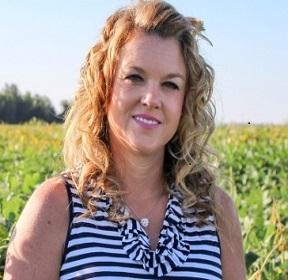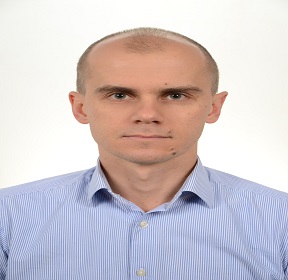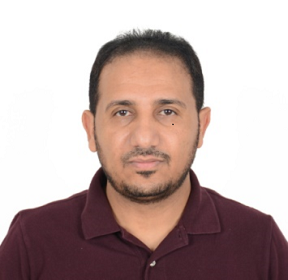OCM
Mycology and Fungal Infections
- Home -
- Ocm
Organising Committee Members
Speaker Details

Nemat O. Keyhani
Department of Microbiology and Cell ScienceNemat O. Keyhani, PhD, is a Professor in the Department of Microbiology and Cell Science at the University of Florida, Gainesville, FL, USA. His research involves fungal biology and genetics. Much of his career has been focused on the biological intricacies of fungal-insect interactions including entomopathogenic fungi and insect fungal mutualists. Regarding the latter, Keyhani has been applying molecular and cellular approaches to study fungal-ambrosia beetle symbioses, developing new models for understanding this unique environmental niche. Although most of these fungi are benign, they also include devasting plant pathogens that have caused tremendous losses to forest and urban trees and threatened important agricultural crops. Keyhani’s research interests also include insect communication and chemical detection. Understanding how insects perceive and respond to environmental chemicals and how they communicate to produce cooperative or self-organized behaviors is integral to increasing our knowledge concerning insect behavior and can have practical application in pest control.
Speaker Details

Teresa Wilkerson
Speaker Details

Filip Boratyński
Environmental and Life SciencesFilip Boratyński has been working at the Wroclaw University of Environmental and Life Sciences (UPWr) since 2004. He is a member of the board of the Polish Chemical Society; a member of the Committee of Chemistry and Physics in Biology and Medicine of the Polish Academy of Sciences; a member of the Polish Society of Food Technologists (all Wrocław branch associations). Dr. Filip Boratyński hired in 2019 as an Associate Professor position is leading the interdisciplinary team of 20 employees from 4 Departments at UPWr gathered in BioActiv Research Leading Group (https://upwr.edu.pl/en/research/leading-research-group/biocatalysis-and-biological-activity-bioactiv). He has a wide range of international collaboration. He gained experience during a number of international long-term fellowships, which he held in the USA (the University of Florida in Prof. Stewart’s group), Germany (the Technical University of Berlin in Prof. Garbe’s group), and Italy, where he conducted research in Prof. Brenna’s group at Politecnico di Milano under the Bekker program financed by National Agency of Academic Exchange (NAWA). Additionally, he was hired as an Assistance Professor (temporary position) at Neubrandenburg University of Applied Sciences in Germany under the program „International Cooperation for teaching and research in the region mildest and south of Europe” (MOEL-SOEL). He participated in many training courses organized by the Foundation for Polish Science (FNP) in the fields of Entrepreneurship, Commercialization of Research Results, and Research Project Management. Filip Boratyński's research interests lie at the border of biology and chemistry and focus on the application of biocatalysts in organic synthesis. He applies enzymes as well as whole cells of microorganisms in the production of bioactive compounds using different techniques of fermentation in looking for biocatalysts with a specific activity. Over the last few years, his research interests focused on the sustainable management of by-products and wastes generated by the agri-food industry to produce industrially important pigments and fragrances with the use of biotechnological tools.
Speaker Details

Fuad Ameen
Botany and MicrobiologyFuad Ameen is an associate professor and researcher at the Department of Botany and Microbiology, college of Science, King Saud University, Riyadh, Saudi Arabia. He graduated his Ph.D. on biodegradation of urban waste by mangrove fungi from King Saud University, Saudi Arabia. In addition; he had served as a researcher in different places in the field of biotechnology and applied microbiology. After that, he has been involved in many kinds of projects, many of them dealing with new solutions to treat the fungal infections and polluted sites. He has collected and studied fungal strains from arid and marine ecosystems with indicating to its ability to biodegrade the most common pollutants, and his program of research on these organisms has taken him to many places and to examples of every major type of terrestrial and marine bioecosystems. He is the guest Editor and Editor for many ranking journals. He is an author or coauthor of more than 160 book chapters and papers in peer-reviewed journals.
Speaker Details

Shi-Hong Zhang
Shi-Hong Zhang is a professor in the College of Plant Protection and director of the Fungal Genetics and Molecular Plant Pathology Program at Shenyang Agricultural University (SYAU), and a professor in the College of Plant Sciences at Jilin University, China. Prof. Zhang concurrently serves as the Director of Liaoning Provincial Key Laboratory for Extreme-environmental Microbiology (KLEM), and Center for Extreme-environmental Microbiology Research, SYAU. He is a pioneer in Extreme-Environmental Fungal identification and applications in soil bioremediation by using halophilic fungi; also, he focuses on molecular genetic research in the rice blast fungus Magnaporthe oryzae, the halophilic fungus Aspergillus glaucus CCHA, the thermophilic fungus Thermomyces lanuginosus W9, and the Psychrophilic fungus Pseudogymnoascus turneri TYL-8, and is committed to promoting sustainable agricultural development through his research. His team is among the pioneers who used beneficial extreme-environmental fungi for soil remediation and environmental management. By efficiently utilizing the effect of saline-alkaline fungi on soil ecological restoration and exerting the integrated effect of saline-alkaline microorganisms and agricultural organic wastes, the problems of serious lack of beneficial fungi in saline-alkali soil have been solved. After decades of efforts, the experimental area in Jilin, Liaoning, Heilongjiang, Shandong, Jiangsu, Hebei and Inner Mongolia reached more than 40,000 mu in 13 counties, which has achieved tremendous economic, environmental and social benefits. From 2006-2016, Prof. Zhang has been the chairman of Science Committee of College of Plant Sciences at Jilin University, China. Since 2020, he joined in Shenyang Agricultural University and set up a research center for extreme-environmental microorganisms. Prof. Zhang has more than 30 years of experience working in the field of plant protection, microbiology and environment protection. Till now, he has over 150 publications to his credit, including research papers, review articles, book chapters in his research fields, and was the co-inventor of 40 granted Invention Patents of China, most of which are useful for crop resistant improvement against bio- or abio-stress.
Speaker Details


